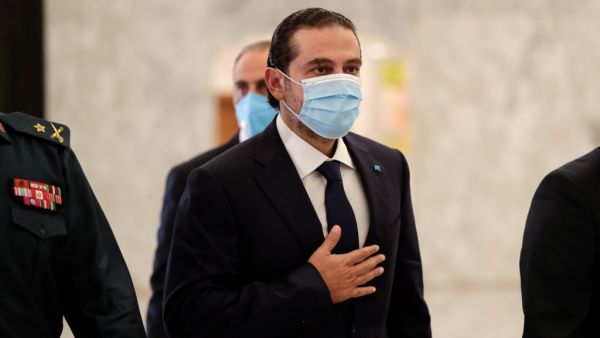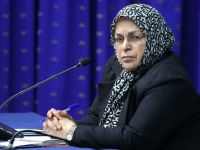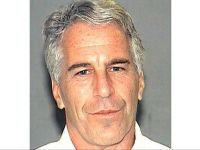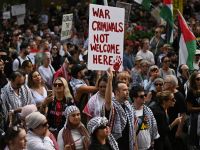President Michel Aoun Thursday appointed Future Movement head Saad Hariri as prime minister-designate, tasking him with forming a government to pull Lebanon out of its deepest crisis since the 1975-1990 Civil War.
A final tally of 64 lawmakers threw their weight behind Hariri, while 53 declined to name an alternative candidate.
The Future Movement bloc unsurprisingly endorsed their leader, while the Amal Movement, Progressive Socialist Party, Marada Movement, Independent Center bloc, Syrian Social Nationalist Party and the Tashnag party’s bloc also backed the former PM to return to his past role.
"The country is tired and the people are disgusted by politics and politicians. We don't want to talk, we want to wait and see how this government will set about this difficult task and restore some hope,” Marada Movement MP Tony Frangieh said.
Aoun met separately with former prime ministers Najib Mikati and Tamam Salam, as well as Deputy Parliament Speaker Elie Ferzli and independent MPs Eddy Demerjian, Michel Daher, Nouhad Machnouk, Jihad al-Samad and Jean Talouzian. They all backed Hariri's nomination.
Salam told reporters at Baabda Palace that he hoped other parties would enable the swift formation of a "rescue government" without "bickering and procrastination."
Mikati meanwhile said that he asked Aoun to fulfil his duty to “govern by the text of the Constitution and “not take sides in any way”- an apparent response to Aoun’s Wednesday speech, in which he indicated that he may delay signing off on any Cabinet lineup that he does not approve of.
“Now is a time for solidarity and we need a rescue government. There’s no time for political bitterness now," Daher said. "If we are not all together and there’s no national unity, I’m scared that this will be the last government in Lebanon as we know it."
Numerous political blocs refused to endorse Hariri and instead chose not to name anyone for the premiership. They were Hezbollah's Loyalty to the Resistance bloc, the Free Patriotic Movement's Strong Lebanon bloc, the Lebanese Forces' Strong Republic bloc, the Mountain Guarantee bloc, the Consultative Gathering bloc, and independent MPs Osama Saad, Fouad Makhzoumi, Chamel Roukoz and Jamil Sayyed.
Hezbollah MP Mohammad Raad said that "national understanding" was needed to "preserve Lebanon" and that it would work to create a "positive atmosphere" to support the Cabinet formation process.
Speaking on behalf of the Consultative Gathering bloc, MP Walid Sukkarieh said that the bloc's four Sunni MPs didn't name anyone "because there was only one candidate" and because they saw " once again a return to the dangerous policies that led Lebanon to the crises it is in now."
MP Georges Adwan, representing the Lebanese Forces, said that the bloc refrained from naming Hariri because he already has "the majority from the [Sunni] component that he represents."
Adwan went on to say that the bloc wants a fully independent government of specialists that is committed to a rotation of the sovereign portfolios, questioning whether Hariri could form such a government. "Where will we go now after Hariri is designated? ... Did the majority of the political class learn that it won't work if there is sectarian spoil sharing and that we must change this system?"
The LF has been attempting to set itself up as an opposition group outside the political elite since Hariri was forced to resign under the weight of a nationwide uprising last October.
Designated as Prime Minister, Hariri will be expected to form a government that can steer Lebanon out of crisis after being sucked into a 73-day political vacuum that started following caretaker Prime Minster Hassan Diab’s resignation over the deadly Beirut Port blast.
Lebanon in the meantime has been sinking further into crisis, left without a fully functioning government that can manage the COVID-19 pandemic, stall Lebanon's financial collapse and respond to the social catastrophe caused by the port explosion.
The government formation process is likely to be fraught with difficulty, however, as Hariri does not have the backing of Lebanon's main Christian parties - the Free Patriotic Movement and the Lebanese Forces.
Prime Minister-designate Mustapha Adid stepped down 26 days ago after he was unable to break through a deadlock over the shape and independence of the government he had been tasked to form. The underlying causes of that impasse remain unresolved.
Aoun Wednesday also signaled that he may delay signing the decree of what “he deems a de facto Cabinet,” a political source told The Daily Star.
“It’s clear that Aoun’s speech reflects resentment on the part of the president and his political party, the Free Patriotic Movement, over the expected designation of [former] Prime Minister Saad Hariri to form the next government,” the source added.
Any delay in the formation of a new government would likely be received poorly by members of the international community who have vowed to help Lebanon chart a course away from outright economic collapse and further instability.
They say they need a credible government to work with and that it must be empowered to carry out a wide-reaching reform agenda that would unlock international aid, most notably that which is organized by French President Emmanuel Macron.
This article has been adapted from its original source.








